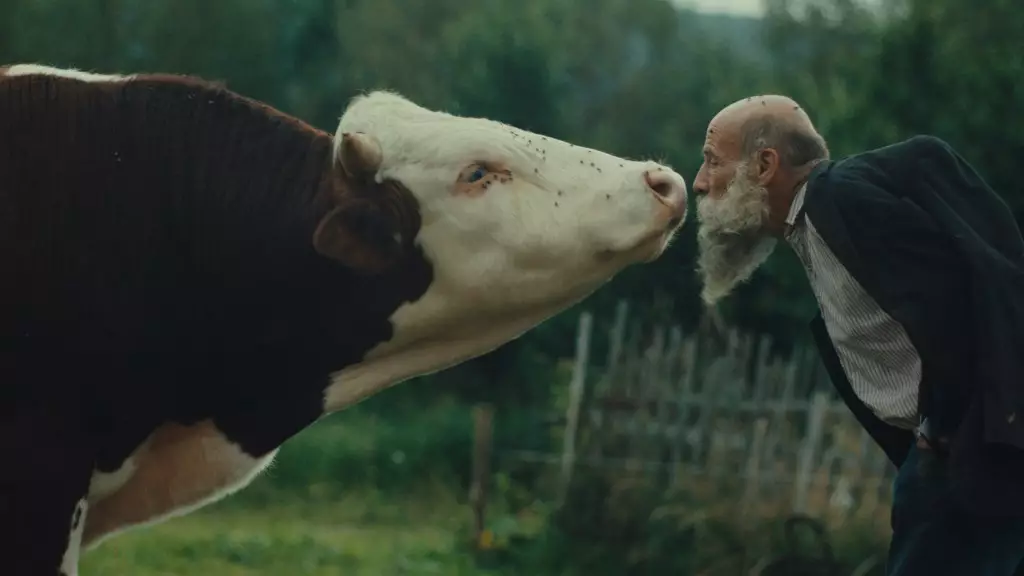In the world of documentary filmmaking, homage often becomes smoke and mirrors for originality. The film in question, bearing the echoes of the Maysles brothers’ legendary *Grey Gardens*, exemplifies this problematic tendency. While paying respects to pioneering work is noble in theory, it risks devolving into an uncreative pastiche that stifles genuine insight. The attempt to draw parallels between the sordid reality of the Klišík brothers’ secluded existence and the decadence of famous American families only scratches the surface of what documentary storytelling can truly achieve. Rather than forging its own narrative identity, it condescends to romanticize eccentricity without interrogating the deeper societal or personal implications embedded within their lives.
The film’s superficial charm lies in its picturesque portrayals—muddy beards, rural cabins, drunken outbursts—yet beneath that facade, it often feels like a missed opportunity. It relies heavily on shock value and visual oddities, from the brothers’ nudity to their philosophical musings. These moments, while amusing, ultimately reinforce a voyeuristic tendency that prioritizes spectacle over substance. Instead of challenging viewers to reflect on the socio-political context of remoteness, the film fetishizes eccentricity as authentic existence. This approach diminishes the potential for a nuanced exploration of the complex realities faced by marginalized or isolated communities, relegating them to caricatures of rustic oddballs.
Superficial Storytelling: When the Past Is a Precious Ornament
Much of the film’s narrative scaffolding rests on minimal exposition and a reliance on personal histories that are dropped into moments of eccentricity. The revelation of the Klišík brothers’ involvement in the Velvet Revolution remains underdeveloped and glossed over, presenting it as a side note rather than a core element that could deepen understanding. This superficial treatment stifles meaningful engagement, leaving the audience with impressionistic glimpses rather than comprehensive insight.
What bothers most is the lack of critical engagement with the brothers’ political past. Their history as protestors, revolutionaries, or thinkers is only loosely sketched—rarely contextualized—making their current lives feel like a picturesque epilogue rather than a meaningful extension of their history. The film’s refusal to dig deeper feels like a missed chance to probe larger questions of social change, resilience, or the long-lasting impact of political activism. Instead, the narrative settles into a series of charming vignettes, which, although entertaining, ultimately fall flat in terms of providing any substantial commentary on the human condition or societal transformation.
Reveling in Eccentricity Without Critical Reflection
A significant weakness of the film lies in its treatment of its subjects. The Klišík brothers can be charming, vulgar, insightful, and profoundly individualistic—all at once. Yet, the film, perhaps afraid of alienating viewers, does not challenge or complicate their personas. Their candid interactions are occasionally amusing but often non-threatening because they’re never placed under enough scrutiny. Instead of inviting viewers to connect with their inner contradictions or to question the meaning of their removed existence, the film indulges in their quirks with a kind of affectionate condescension.
This approach risks turning these men into caricatures of rural outsiderhood, emphasizing their eccentricities as if to say, “Look how strange these remnants of a bygone era are.” What the film lacks is the courage to confront the darker or more nuanced aspects of their lives—perhaps their regrets, frustrations, or the alienating forces of a rapidly changing world. Without this layer of complexity, the film offers a shallow consolation: the idea that merely living authentically, however bizarre, is inherently profound.
The Fragile Promise of ‘Authentic’ Lives in a Modern Age
What might have been a deeply human exploration instead devolves into a reiteration of rustic stereotypes. The brothers their stories are painted as perfectly charming, but the documentary glosses over more pressing questions: What does it mean to live “off the grid” in today’s interconnected society? Are these lives sustainable, or are they romanticized relics destined to fade? The absence of critical perspective makes the film seem like a nostalgic ode rather than a provocative inquiry.
The narrative’s restraint—deliberately minimalistic in exposition—can be seen as a stylistic choice or a failure to push beyond surface-level storytelling. When the film ventures into contemplating their political activism, it remains sanitized and unexplored, obstructing any real conversation about activism’s consequences and relevance in modern times. Its focus on bizarre and humorous moments might entertain, but it ultimately sidesteps the vital questions about resilience, community, and cultural inheritance that could make the story resonate more deeply.
Provoking Thought in a Culture of Spectacle
In an era obsessed with

